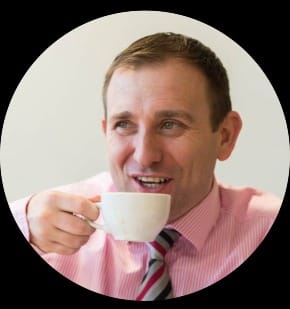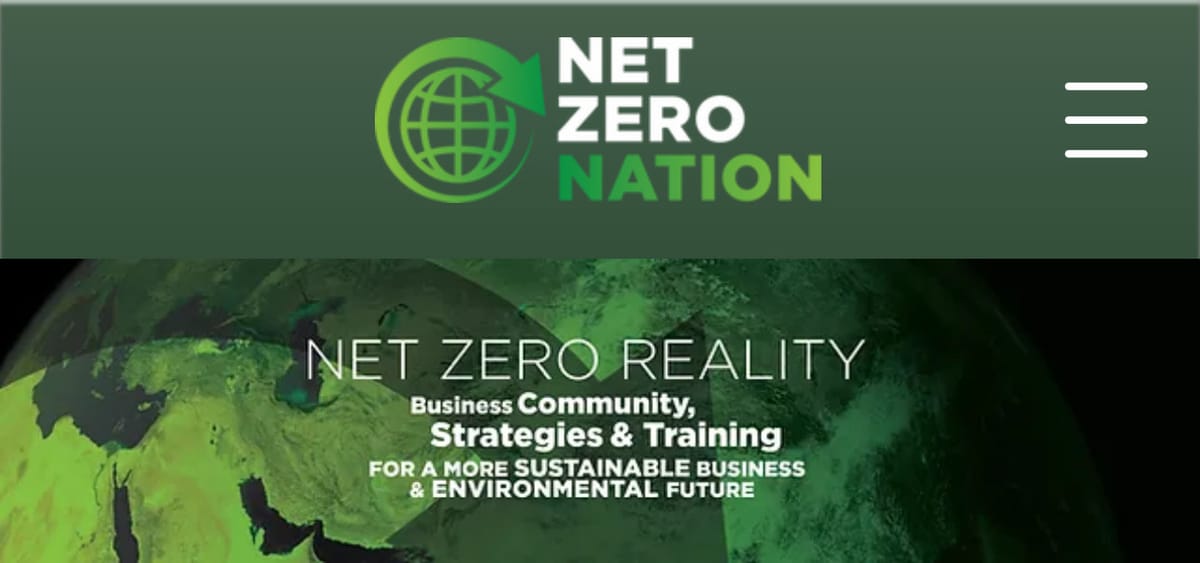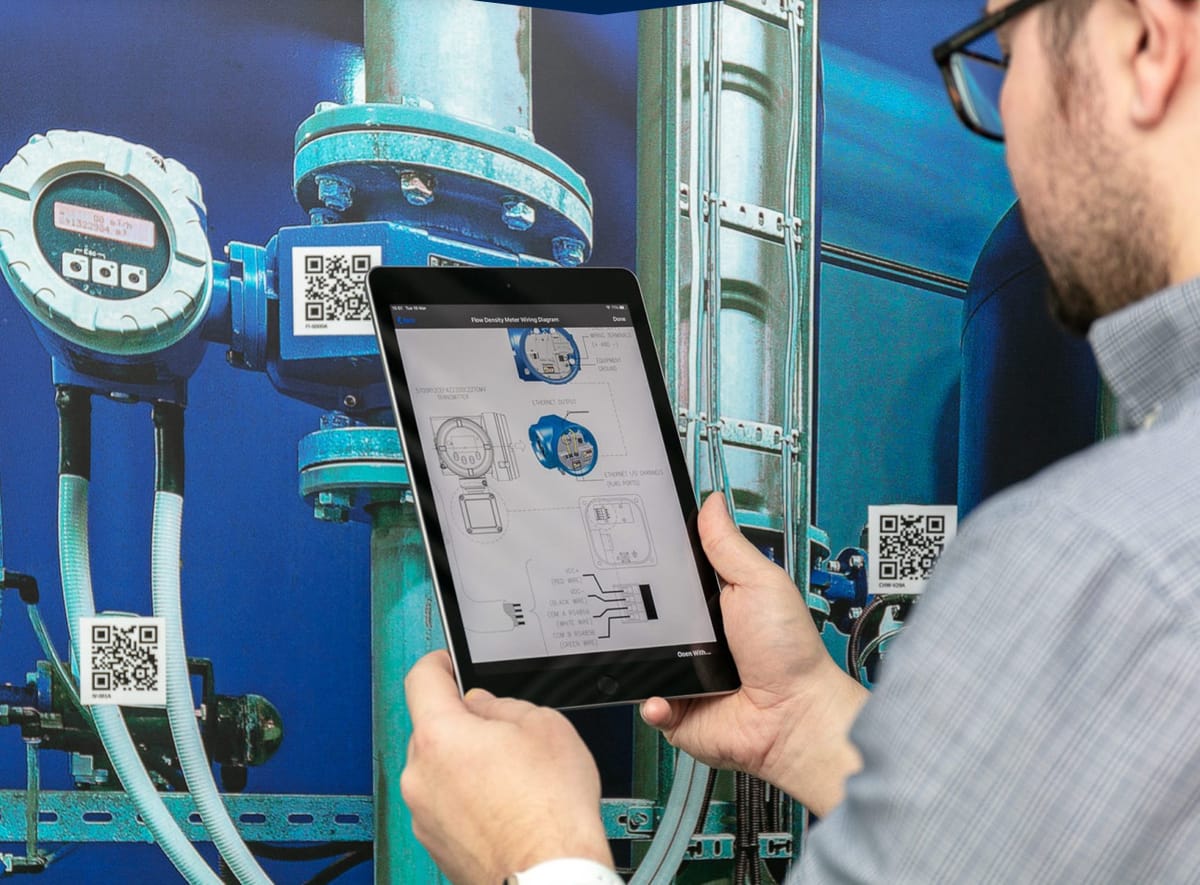Saving money and the planet— not a bad brace.
Imagine you knew in advance that your car was about to break down. Imagine the money you could save by fixing your car in the garage before you leave. Imagine the stress you would reduce by avoiding that breakdown. Now apply that example to an industrial plant — you know in advance that a certain machine is about to pack up. You know in advance that you will be unable to meet that new order unless you fix a mechanical fault.
Jamie Burns, founder and Managing Director of Ailsa Reliability Solutions, says he used to be a firefighter. He was not literally a firefighter, driving around in a red engine rushing into buildings; rather, he put out metaphorical blazes, flying around the world in planes and rushing into plants. Jamie is an unusual mix of a salesperson with a clear entrepreneurial streak and an engineer. He is a techie who loves to delve into the nuts and bolts, both physical and virtual, of the physical processes that make an organisation tick. An electronic engineer by background — he stepped in when a plant was failing or, at the very minimum, was working inefficiently.
“But I used to think that there must be a better way. Prevention is better than cure. Why wait for the problem? Would it be better to anticipate it?”
He says that today, “I think of myself as a fire prevention officer.”

He founded Ailsa Reliability Solutions just over three years ago. The company is in the business of condition monitoring and reliability. And he says we have one simple mission: “to save clients money.”
But there is something else about the rationale behind Ailsa Reliability Solutions; it is also about saving the planet and helping people. “There is no trade-off,” he says. People have got to stop seeing net zero as a cost. We see net zero as being a part of continuous improvement; if you could get your net zero strategy right, you will save money.”
Let’s drill down. How do you save clients money whilst simultaneously trying to save the planet and help people?
Waste is such a waste.
“The goal,” says Jamie,” is to save clients money by eliminating unplanned downtime and reduce wasted energy in critical processes.”
The company applies cutting-edge technology and innovative thinking to monitor, manage and mitigate risk of failure. We then seek to find a problem in advance and get it solved during a planned outage.”
Being part of Net Zero Nation has allowed me to meet and collaborate with people that I would never have met if not part of the community.
The accelerator helped me build my business brand into what it is today and continually developing this.
I'm continuing on as we are making a difference and I'm still learning so much. Plus not getting a chance to help others who are just starting thier journeys so getting a lot of satisfaction from giving back: Jamie Burns
Let’s return to an analogy with a car. If it runs on soft tyres, it uses more petrol/gas. If you realise that the tread on your tyres is getting thin and you are about to drive down a road bestrewn with sharp objects, you know the risk of a puncture increases. Now, apply these ideas to a plant — a plant that is working off faulty equipment is not operating efficiently—which means it uses more energy.
It is also stressful, which is bad for people.
The wind turbine example
Take a wind turbine — unplanned maintenance costs both money and carbon. Jamie says that if a three-megawatt wind turbine is down for five weeks, this might cost £¼m. But this may also reduce the amount of clean energy generated by the turbine over that period by over two thousand megawatt hours — two-gigawatt hours.
If the underlying problems with the turbine can be identified in advance and fixed during planned downtime, then there is a kind of double saving. The company behind the turbine saves money while more green energy is generated.
But there are multiple other examples. Electric Motors that pack up might need to be replaced by new units, most of which are manufactured in China — with a financial and environmental cost. It is better to repair rather than replace and this can only be done by catching a problem before it is beyond economical repair.
Another added benefit is you can assist the circular economy! By using this critical data, you keep equipment running for longer, as you can catch issues early enough that you can repair with minimal parts required and no need to replace.
Jamie says it is about using data to advise changes in condition and make strategic choices when something could become broken in advance.
How does it work?
Ailsa Reliability Solutions operates by applying the best in class technology, such as the best tech for generating data and processing it, and then displaying the data via a proprietary dashboard developed by the company.
Sourcing or developing the best technology is key. Jamie cites a collaboration between Ailsa and The University of Strathclyde and the National Manufacturing Institute for Scotland (NMIS) to develop a machine-learning tool to enhance the process.
“AI is not always fit for purpose,” he says. “AI is like a child, and if you teach it the wrong things, it can grow up into a delinquent.”
The three-pronged sea change
But in the last few years, three factors have created a sea change. Covid is one factor. Companies learned that there is a different way of managing processes than sending people worldwide every time there is a problem.
Simultaneously to the Covid effect, technology saw rapid change, especially AI. Today, we are not only in a post-Covid world but also in a post-ChatGPT world.
A third factor was at play — Cop26, held in Glasgow, just a few miles from where Ailsa is based, created a new impetus for net zero.
Go back
Before we finish, let’s go back.
Jamie says he was always entrepreneurial. As a kid, he ran two paper rounds — nothing unusual there. But Jamie has a way with people; he got to know his customers — and began to upsell. First, he added a bacon run to the paper round and then began delivering confectionery, too.
He learned a hard lesson. He hired two friends to help him, but they ate his stock!!!
Jamie says he learned from that the importance of picking your partners carefully.
From that entrepreneurial start, Jamie migrated to door to sales until he took an electronics engineering apprenticeship.
The biggest lesson
And what is the biggest lesson Jamie has learned, and coupled with that, what advice does he have?
Jamie paused thoughtfully: “Not everyone is ready to change. But you have to show what’s in it for them.
He says the lesson applies to ESG, too. Not everyone is ready to adopt net zero until they see what’s in it for them.
Favourite gadget
Jamie lists three products as his favourite gadgets:
· Falcon Analyser — an innovative tool for vibration measurement
· MBVI technology
It is also scripted.
Finally, Ailsa Reliability Solutions has a modus operandi — best summed by the acronym — SCRIPTED
S — Safety
C — Consultative
R — Responsible
I — Innovative
P— Partnerships~
T — Transparent
E — Environment
D — Dedicated
Jamie also thinks he has the script for helping the planet and people, showing what is for them and that saving people and the planet can mean higher profits. That is a script worth shouting about from the centre stage.
For more in this series, see:









Related News
Navigating the ESG backlash
May 08, 2024
Something rather important is lying hidden, and one of our guests this week knows how to find it.
Apr 23, 2024
If this is an AI bubble, then heed the lessons of the dotcom bubble
Apr 07, 2024